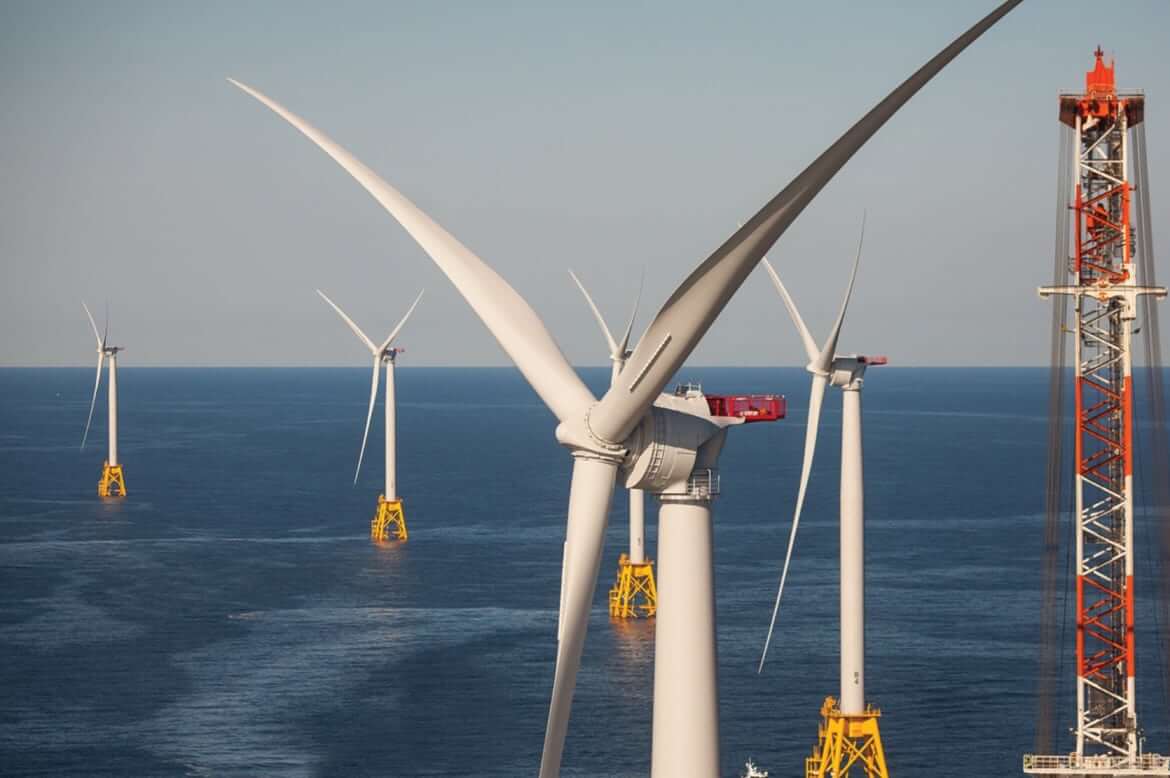Deepwater Moves To State Review

Deepwater Wind will ask the New York State Public Service Commission to begin an Article VII review of its South Fork Wind project on Friday, September 14, as is required by law.
Originally, Deepwater told East Hampton Town officials that it first needed an easement to bring a cable from its offshore wind generators onshore in Wainscott. A Deepwater vice president, Clint Plummer told the town Deepwater needed approval by June 30 to keep the project on time. But Councilman Jeffrey Bragman checked with the state and was told Plummer was mistaken.
As it turns out, the East Hampton Town Trustees have not voted to grant an easement and do not intend to, according to Clerk of the Trustees Francis Bock.
“There will never be an easement. Right now, we’re thinking a lease will better address our concerns,” Bock said. Such a document would be renewable and allow the trustees to “build in” concerns they have about the project including, for example, the need for an electro-magnetic fields study. “My main concern is the EMF effects on fish migration,” Bock said.
The trustees have hired an attorney, Dan Spitzer, to represent them in the Article VII hearings as interveners. The East Hampton Town Board intends to file for the same status, as do at least two other groups (see accompanying story).
Bonnie Brady, the executive director of the Long Island Commercial Fishing Association, one of the interveners, said from the start the offshore wind project has been shrouded in double talk and secrecy.
“LIPA has done everything in the shadows. We’re never told everything. We’re still not seeing the whole picture,” Brady said. “People should be on edge.”
Deepwater will list Beach Lane in Wainscott as its preferred point to bring a cable ashore from the wind generators in the ocean. That cable will then run underground to LIPA’s Cove Hollow substation. Deepwater’s second choice will be to come ashore on state- owned land in Napeague. Some critics think the latter alternative is a bluff — that the chore of getting the cable from there to Cove Hollow is too complex to achieve.
There are also rumors of lawsuits flying as wealthy individuals opposed to the project flex their muscles. “I wouldn’t be a bit surprised,” Bock said of the prospect of suits being filed to stop the project. “I wouldn’t be surprised if we get sued, and I wouldn’t be surprised if the town board gets sued.”
Bock said denying the easement would not necessarily kill the project, that the PSC could override the trustees. “I’d rather have our concerns built into a lease than leave it to the judge,” he said.
Spitzer, from the Buffalo firm HodgsonRuss, concentrates his practice on issues involving environmental law, renewable energy, sustainable development, land use law, municipal law, and real estate development. His practice involves numerous renewable energy projects, including representing municipalities, developers, landowners, and financing entities.
rmurphy@indyeastend.com



